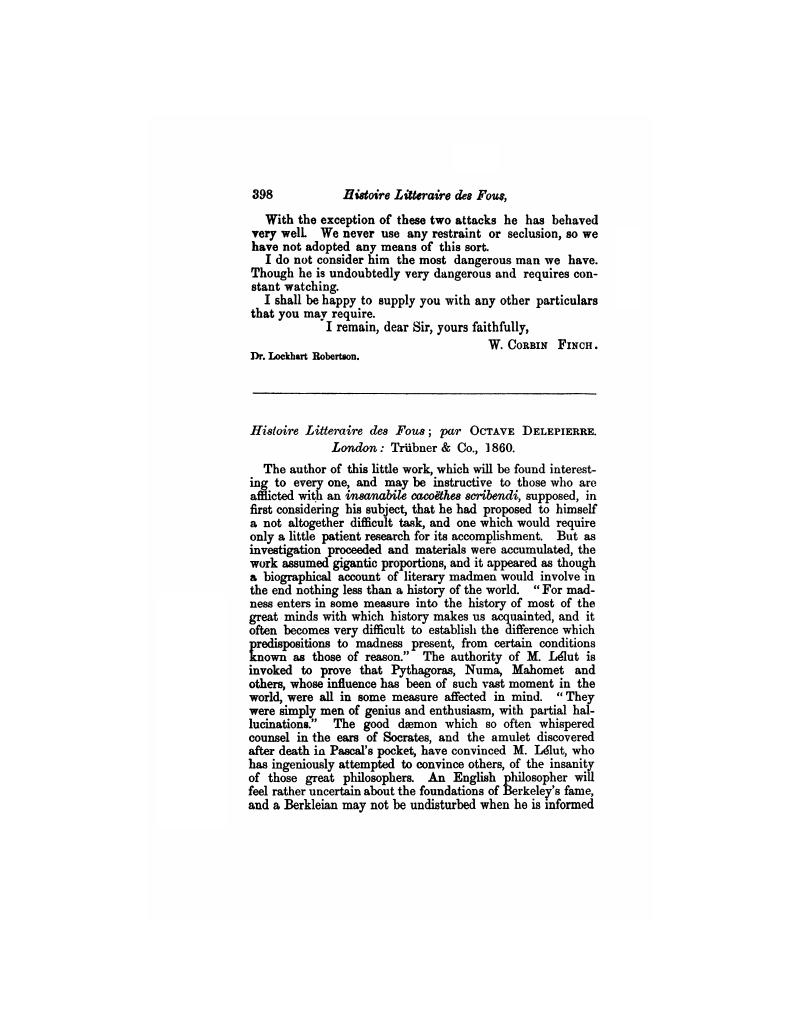No CrossRef data available.
Published online by Cambridge University Press: 19 February 2018

∗ Burton's Anatomy of Melancholy—where the account is quoted almost verbatim from Hippocrates' Epistle to Damagetus.Google Scholar
† Carlyle's Lectures on Herons—Mahomet.Google Scholar
‡ Aubrey's Miscellanies.Google Scholar
∗ Lyttleton's Conversion of St. Paul.Google Scholar
∗ Here is a fact which may be worth consideration by certain authorities, when they find the pillows of pauper lunatics too thin and feel moved to recommend thicker ones :—“St. Francis happening once to use a pillow on account of illness, the devil got into his pillow, and made him uneasy all night. But upon his ordering the pillow with the devil in it to be carried away, he presently recovered.”Google Scholar
† Enthusiasm of Methodists and Papists compared.—Lavington, Bishop.Google Scholar
∗ The Alpha, a Revelation but no Mystery, By Dennys, Edward R..Google Scholar
∗ The great modern sage has thus quietly expressed deep truths. “Die Geschichte des Menschen ist sein character.” Wilhelm Meister, vol. II., 216. and again, “Wie glücklich ist der über alles, der um sich mit dem Shicksal in Einigkeit zu setzen, nicht sein ganzes vorhergehendes Leben wegzuwerfen braucht. II., 238.Google Scholar
† A plagiarism from the Germans, (in this case from Schelling) as so much of Coleridge's philosophy was.Google Scholar
∗ Preface by Dr. Davis, to his translation of Pinel.Google Scholar
∗ Feuchterleben's Medical Psychology. The work which would appear to give most information on this subject, but which we have not seen, is Systematische Litteratur der Aerztlichen Psychologie: Berlin, 1833.Google Scholar
eLetters
No eLetters have been published for this article.